A traffic ticket can have a significant impact on your life. You will almost certainly…
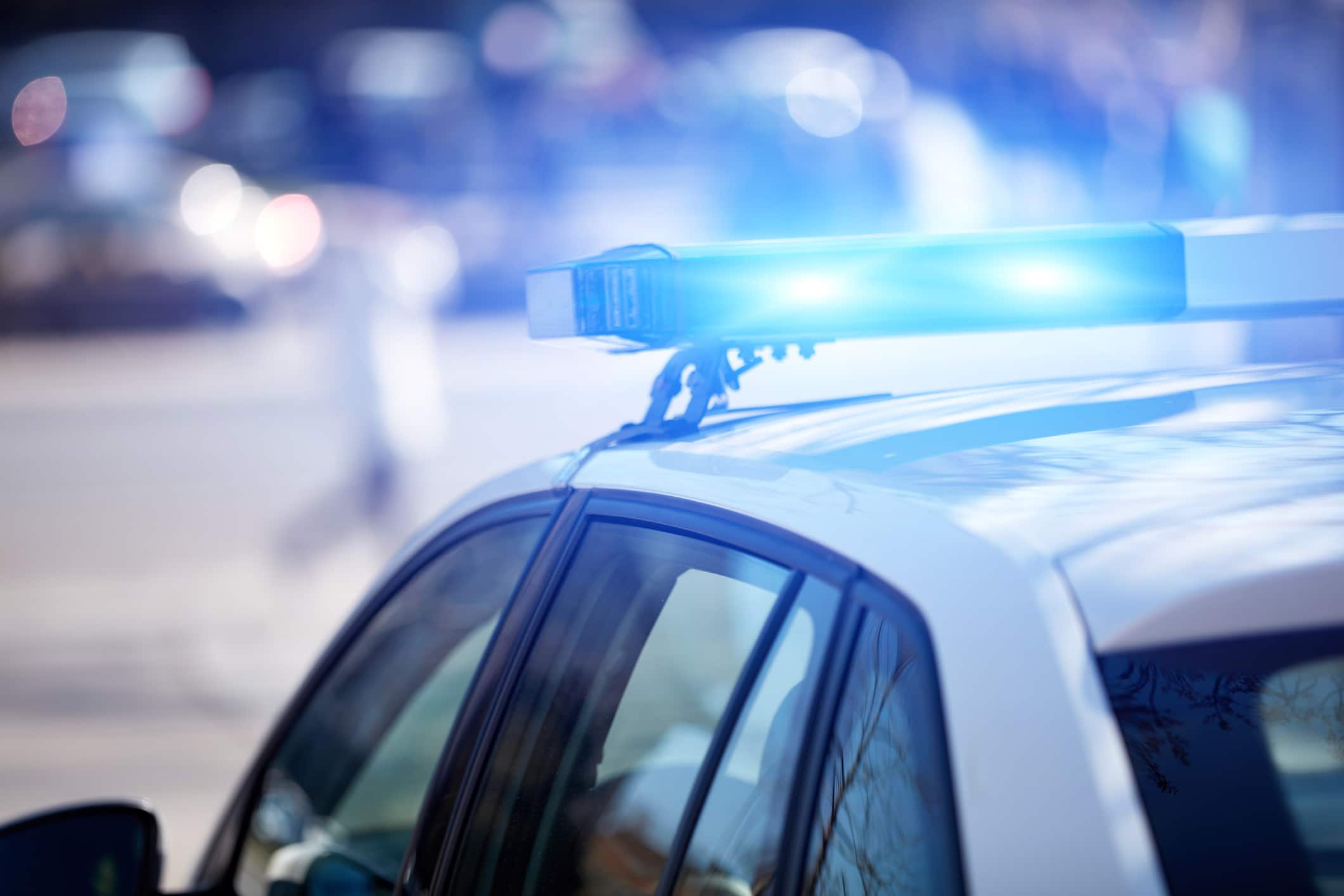
What To Do During a Traffic Stop Procedure
A traffic stop is a nerve-wracking experience for all drivers. It disrupts your day and can invoke feelings of anxiety and uncertainty. Whether it’s a routine check or an unexpected stop, understanding traffic stop procedures and knowing how to conduct yourself in a calm and confident manner is critical to ensuring a smooth and respectful encounter with law enforcement.
As an experienced traffic lawyer, I know what it takes to get through traffic stops with ease, and I want to share that knowledge with you. This article will walk you through a typical traffic stop and explain the best practices to follow should you find yourself in this situation. Following these tips may help turn a potentially tense situation into a positive experience for all parties involved.
Routine Traffic Stop Procedures
When you see flashing lights in your rearview mirror, it’s natural to feel a rush of anxiety. However, knowing what to do if you get pulled over helps alleviate some of that anxiety and provides reassurance during this stressful time.
Safe Pull-Over Practices
When you first notice the police vehicle signaling you need to pull over, you must do the following:
- Swiftly and safely move to the side of the road
- Park your car
- Roll down your window
- Wait for the officer to approach
Although this is one of the most stressful parts of a traffic stop, road safety tips still apply. Do not allow yourself to be in such a hurry to pull over that you create unsafe traffic situations and put yourself, the officer, and other drivers in danger.
If there is no immediate safe place to pull over or no shoulder on the road or highway, don’t panic. Simply acknowledge the officer’s signal by turning on your hazard lights and slowing down. Look for less busy side roads or exits you can pull off on and signal your intention to do so. Remember, this happens all the time. The officer will understand why you cannot pull over right away.
Interacting with Officers
One of the most important things you need to know about handling police stops is how to interact with officers respectfully.
When the officer first approaches your vehicle, take a few deep breaths. Remember, this is a routine situation; do not panic. Simply place your hands on the wheel and keep your hands visible. Please do not reach for anything out of sight or make any sudden movements.
When they reach your window, the officer will likely provide you with an explanation for pulling you over. Listen to them carefully, and feel free to ask clarifying questions as necessary. Remember to speak clearly and concisely. Avoid being confrontational or arguing with police officers, as doing so may lead to additional repercussions.
Presenting Your Documents
One of the first things a member of law enforcement will do is ask for your license, insurance, and registration. They will expect you to provide those documents as quickly as possible so it is essential you know where they are.
In this digital era, many of these documents are available online. However, it’s important to keep hard copies of these documents in your vehicle for this purpose. I recommend keeping them in a file folder in your glove compartment so they are easy to grab.
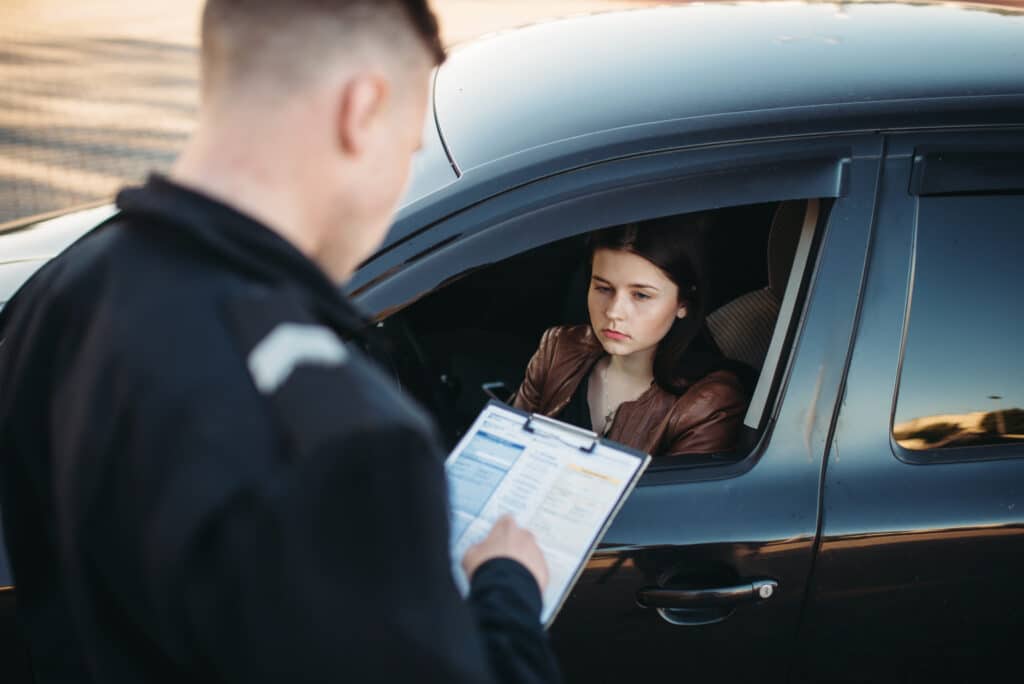
Driver’s Rights During Traffic Stops
Understanding traffic stop procedures and knowing your rights and responsibilities is critical for protecting yourself and having a positive interaction with law enforcement. Here’s what you need to know:
- You have the right to remain silent if you’re unsure how to answer any of the officer’s questions. Simply provide them with the documents they ask for and politely inform them that you will be executing this right.
- You have the right to refuse consent if they ask to search your vehicle without a warrant; just politely decline the request.
- You have the right to legal representation if you feel you need it or are questioning whether your rights are being violated.
- You are responsible for providing information such as license, proof of insurance, and proof of registration.
- You are responsible for complying with orders. During a traffic stop, you should comply with lawful orders like exiting the vehicle.
- You are responsible for maintaining safety. As a reminder, you need to pull over in a safe place, keep your hands visible, and avoid making sudden movements.
Handling Police Stops in Special Situations
Traffic violations are not the only situation that may result in a police stop. Other common situations include:
- Equipment violations such as broken tail lights, overly tinted windows, etc.
- Distracted driving while using a mobile phone
- Reckless driving
- Roadside checkpoints for DUIs/DWIs, seat belt usage, and expired registration tags
- Probable cause of suspected criminal activity
DUI/DWI Traffic Stop Procedures
When pulled over for a suspected DUI/DWI, you must remain calm, comply with the officer’s instructions, and remember your rights.
Try to say as little as possible and avoid making any incriminating statements or admitting to being under the influence of drugs or alcohol; remember, you have the right to remain silent and the right to be questioned in the presence of a lawyer.
If asked to perform a field sobriety test or breathalyzer test, you have the right to refuse. However, it is important to note that doing so may lead to suspicion or arrest, in addition to driver’s license consequences. If you are arrested, do not resist the arrest or argue, as this could escalate the situation and lead to additional charges. Follow the arresting officer’s instructions and call an experienced DUI lawyer for legal aid.
Learn more about DUI/DWI law in Kansas and Missouri
Contact Sloan Law and Get Legal Advice for Traffic Citations
Traffic stops are stressful, but knowing how to conduct yourself if it happens to you is critical to getting back on the road quickly. By following the advice outlined above, you can protect your rights and ensure a smooth interaction with members of law enforcement.
If you feel that you were unfairly issued a traffic ticket or are facing serious legal charges for violations like DUIs, hit-and-runs, and reckless driving, working with an experienced traffic lawyer can help you navigate the legal system in the hopes of reducing the charges filed against you.
Similarly, if there is a possibility that being pulled over could result in your losing your license or commercial driving job, seeking legal counsel can help you achieve the best possible outcome and protect your livelihood.
Attorney Taylor Sloan is an experienced traffic lawyer who will approach your situation with kindness and compassion and offer sage legal advice and strategic defense when applicable.
If you or someone you know could use the help of a traffic lawyer, don’t delay – contact Sloan Law in Kansas City today for assistance to ensure your rights are represented and you’re getting the legal help you deserve.

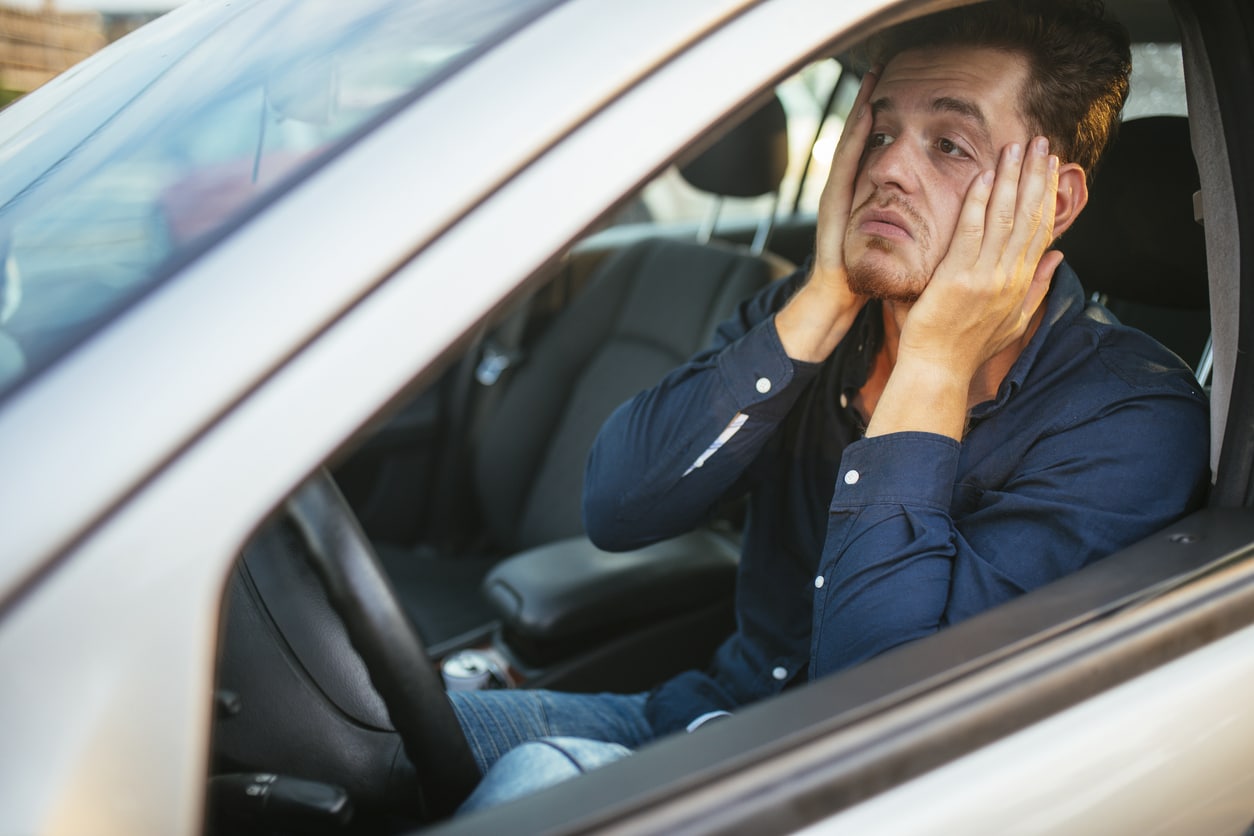
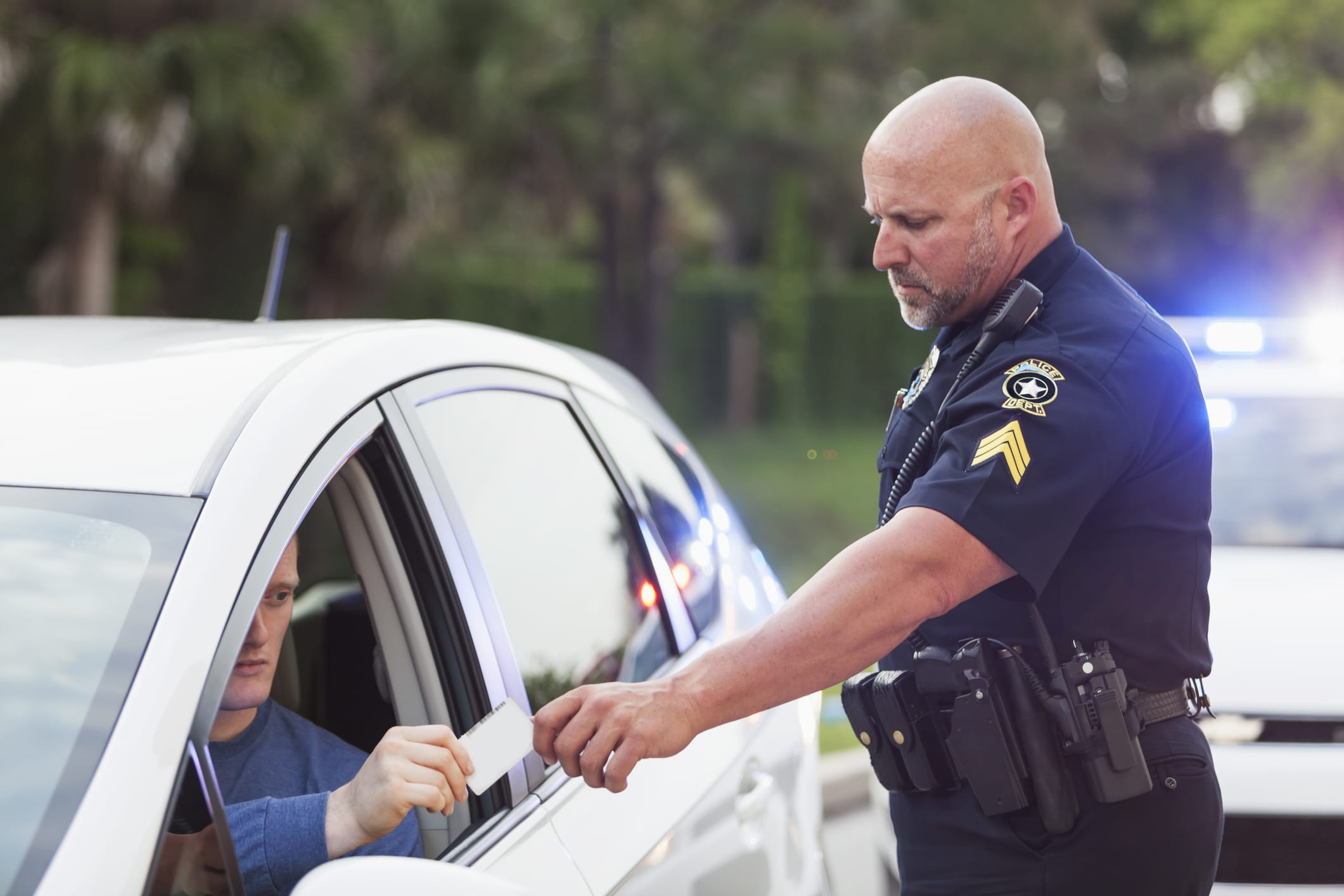
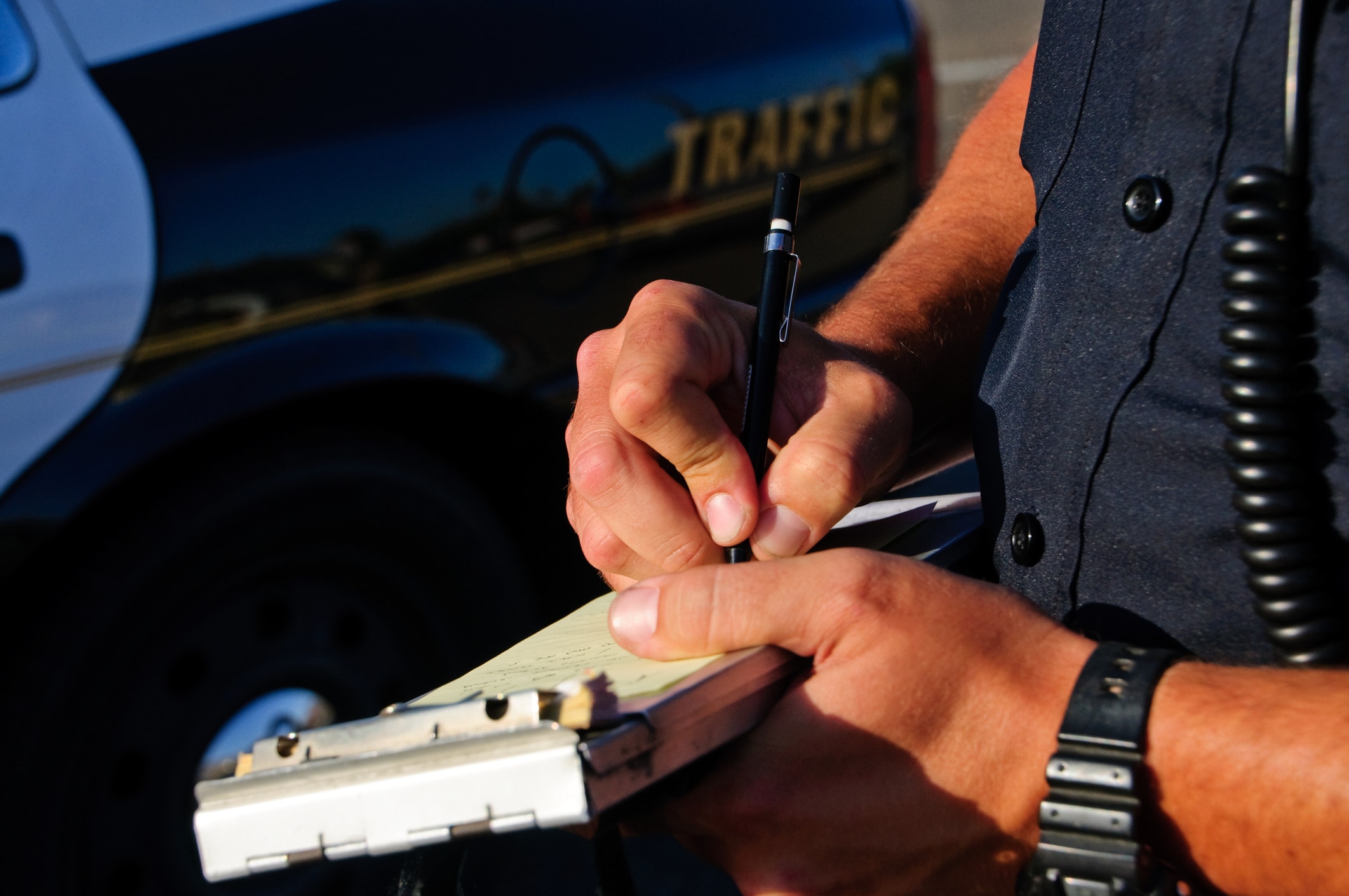
This Post Has 0 Comments